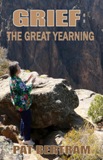One of the greatest things about self-publishing, it seems to me, is the opportunity for everyone to write and publish an autobiography, memoir, or some form of family history. A nephew of my husband's recently published the life of his grandfather, my husband's uncle, for which the family was very grateful.
But where do you start, supposing you want to write a personal history?
According
to
Seymour Rothman, newspaperman and author of YOUR MEMOIRS,COLLECTING THEM FOR FUN AND POSTERITY, "Memoirs are about you
and life."
So
is any form of writing, if you care about it.
Many
authors, especially in the past, kept diaries or detailed journals
recording events, the authors' impressions, and any ideas for
characters or plots sparked by those events.
But
let's take memoirs as a starting point, go through writing one's
life, and end with writing
from
life.
Memoirs
are like autobiographies, but are less formal.
Autobiographies
are expected to be very precise and verifiable.
Memoirs
are your memories:
What
you remember happening, what you remember thinking or now think about
what happened, and what you learned from the event.
Rothman
suggests beginning with five envelopes, labeled: Dates,
History, Thoughts, Lessons, Miscellany.
DATES
Make lists of all the dates you remember.
If
a date sparks a memory, or a host of memories, write those memories
down on separate pieces of paper and put them in the appropriate
envelope.
If
they would go just as well in one envelope as another, put them
wherever you like; it'll all come together in the end, anyway.
Mr.
Rothman suggests heading your date lists:
Forebears,
Birthdays, Residences, Education, Employment, and Good Times and Bad.
I
would add Deaths, Important personal events, and Important public
events.
The
dates may be exact, or approximate, or you may remember events but
not the dates.
You
can dig for the dates later; for now, just name the event.
You
may not have any useable memories connected with a date, but thinking
about that date might free-associate into useable memories:
(You
may not remember anything special about any of your baby brother's
birthdays, but you may have many special memories about your baby
brother.)
HISTORY
As
far as family history goes, if you don't have facts, put down clues.
Clues
were what led
Alex Haley to the re-creation of his family's history.
Collect
stories from relatives and friends and your own memory:
Birthing
stories, holiday stories, funeral stories, illness stories, accident
stories, car stories, pet stories.
THOUGHTS
Your
thoughts express your philosophy of life, your personality.
LESSONS
Ask
yourself: What
is the most important lesson you've learned in life?
Why
do you say that?
Thoughts
and lessons are very close, sometimes intertwined. Don't
worry about that; again, it doesn't matter what envelope you put it
in, as long as you get it out on paper.
SOURCES
for locating, remembering, or dating events:
The
old family Bible, letters, scrapbooks, school yearbooks, diaries and
journals, old city directories, genealogies, photos, newspaper
clippings, business papers, report cards, documents, souvenirs and
programs, school essays themes and dissertations, old "TV
Guide"'s, old magazines, old movies, favorite foods -- a major
source, ultimately
the
major source, is YOUR MEMORY.
Rothman
says, "Talking about yourself opens your memory.
Exchanging
memories and experiences with others reminds you of things long
forgotten."
This
is true whether you're talking to someone who's known you all your
life, or a stranger in the doctor's waiting room.
When
a conversation, or something you're reading -- anything -- sparks a
memory, hold onto it and make a note of it. You
can expand it later.
PUTTING
IT ALL TOGETHER
Collect
your dates, actual or approximate, and match the events with them.
This
gives you an outline in chronological order.
Match
events to dates, lessons and thoughts to events.
If
you have lessons and thoughts left over, save them for something
else, or put them at the end of your book under the heading of Random
Ramblings, or Advice to the Young or something.
If
you want to center your autobiography on one pivotal event or set of
events, you may want to select only those events, thoughts, and
lessons which had the most bearing on what you see as the heart of
your story.
This
is where fiction comes in.
JamesN. Young, in the book, 101 PLOTS USED AND ABUSED, says, "Stories
out of real life...were written by Life; and Life, which scribbles in
accordance with no plan, is a poor technician. ...They
are plotless."
But
are
James Herriot's real life stories plotless? No.
How
is that possible?
He
imposes a structure on the events.
He
selects dates, thoughts, feelings, lessons, and minor events which
highlight his major events, and he treats himself as if he were a
fictional character.
He's
objective about himself; he shows himself warts and all.
We
have no trouble believing it when he does something noble, because
we've seen him doing or thinking something petty, and that gives him
credibility.
So,
begin by picking an imaginary reader for whom you are writing.
What
kind of image of yourself do you want to project?
What
message do you want the work to carry?
What
is this piece of writing for?
Who
is it for?
For
instance, let's take Edith.
She
has had a major experience that she wants to get on paper, maybe for
herself, maybe for her family, maybe for other people who are going
through the same kind of experience.
- She decides to start with a Preface answering these questions: Who
am I?
Why
am I writing this?
When
am I writing this?
What
is my current situation?
- Family
history
- Memories
leading to (what Rothman calls) the Big Event
- The
Big Event
- Anti-climax
and wrap-up.
That's just one way of ordering the material. Choose your own way. After all -- It's your story!
Marian Allen
Fantasies, mysteries, comedies, recipes










